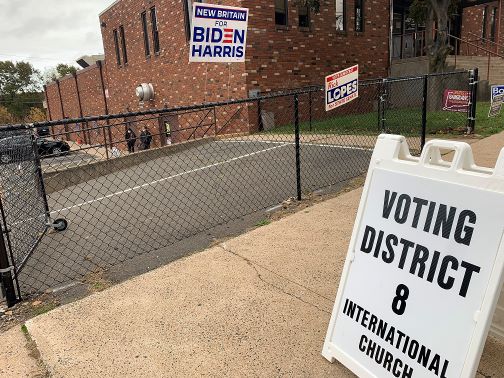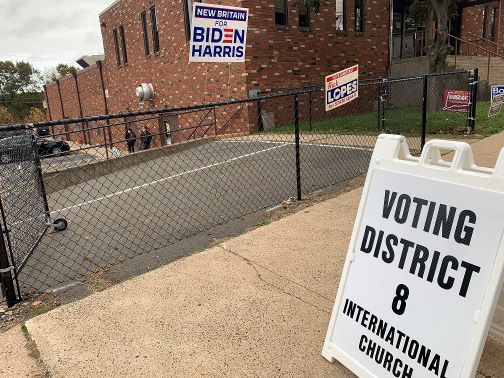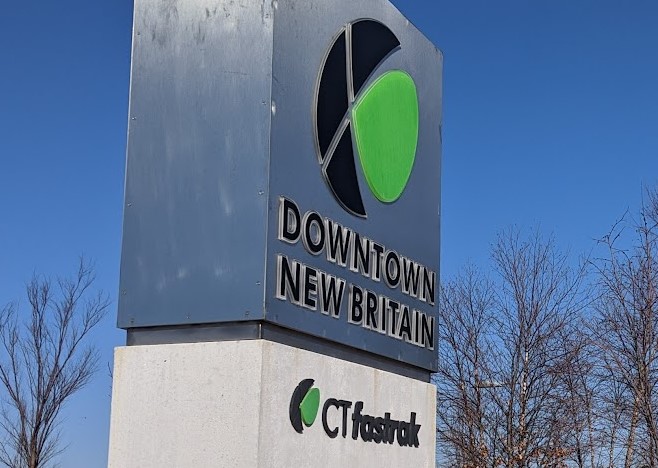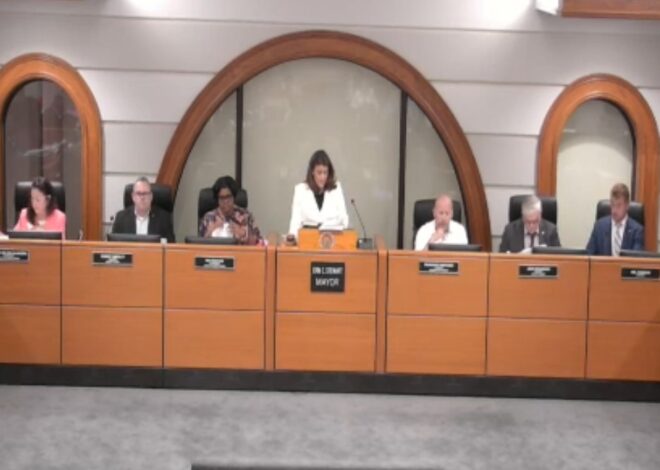Deadline Is May 11th To Finalize Voting Locations
By John McNamara
A plan by both Democratic and Republican Registrars of Voters to reduce the city’s Election Day polling places from 17 to 12 was unanimously tabled by the Common Council’s Committee on Finance, Administration and Law on May 4th less than a week before the deadline to set polling locations for the 2022 primary and general election.
Republican Registrar Peter Gostin presented a revised plan with 12 voting locations after the approval of new ward and General Assembly (state representative) district boundaries required by 2020 Census Redistricting. An initial proposal called for 11 polling places but Registrars added back a poll to allay apparent concerns by officials who reviewed it.
Gostin and Democrat Lucian Pawlak presented data that showed low turnouts over 12 years in six voting districts that they say justifies consolidation of the polls. The Registrars’ survey of comparable towns found New Britain has more polling places geographically than other communities and that 94% of voters surveyed in recent elections drive rather than walk to vote on Election Day. The number of moderators and poll workers would go from 183 to 149 with an estimated savings of $13,500, according to Gostin, who said the status quo is “a waste of resources.” Pawlak told the Committee the plan will be in effect for 10 years and “we’ve made a good decision for the city.”

In addition to the consolidation of several districts, the Registrars called for the elimination of polling places at the Graham and Senior housing (old high school) where residents vote now in the current District 5. Gostin said voter access would be addressed via voting by absentee ballot that currently occurs at nursing homes and that a shuttle would be used on Election Day for voting at the Senior Center on Pearl Street.
The Committee, at the behest of Council President Robert Smedley, briefly recessed to discuss the Registrars’ plan with Justin Dorsey, Chief of Staff for Mayor Erin Stewart. Following the break and meeting with Dorsey behind closed doors the Committee immediately tabled the plan and instructed the Registrars to bring back a plan that retains 17 polling places.
A special meeting will be called at 6:30 p.m. on May 11th ahead of the regular Common Council meeting to finalize polling places in 2022 when voters will elect Governor, U.S. Senator, state legislative seats and constitutional officers.
“All of the evidence points against this,” Gostin responded to Committee’s “consensus” that 17 polling places be retained. He said New Britain is an “island” among communities that have opted for fewer polling places.
If approved by the Council the apparent decision by Mayor Stewart to have her Council majority maintain 17 voting locations would likely head off controversy so close to another election. Registrar Gostin has previously prepared feasibility studies and moved to reduce polls from 17 to 10. Those proposals were met with a public outcry that would likely occur again by advocates of more voter access in central city neighborhoods. Democratic Party leaders in the past have opposed similar Gostin proposals saying closures target minority and elderly voters.
New boundaries for ward (Council Districts) have also been established in accordance with population and state representative district boundaries by the Redistricting Commission whose members include the Registrars. An analysis by the New Britain Progressive, however, concluded that the new political map “could limit the voting power of communities of color to elect City Council representation of their choice.” The analysis noted that “according to data from the United States Census Bureau, the percentages of communities of color (including Latinos, African Americans, Asian Americans and others) among New Britain’s population has grown from 52% in the 2010 census to nearly 63% in the 2020 census.”
Voter access and voting rights are expected to be a significant issue in 2022 amid Republican moves in other states to restrict voting rights and close polling places. Connecticut has taken steps in this year’s legislative session that ended Wednesday to put a constitutional amendment on the ballot that will allow for early voting in future elections. And last month Governor Lamont signed legislation (Public Act 22-2) expanding two of the six statutory reasons under which voters in Connecticut can qualify for an absentee ballot during an election, primary, or referendum by allowing out-of-town commuters and caretakers of those who are ill or have a disability to vote by absentee ballot.
Polling places for an August state Primary and the November election must be finalized at the May 11th Council meeting.




